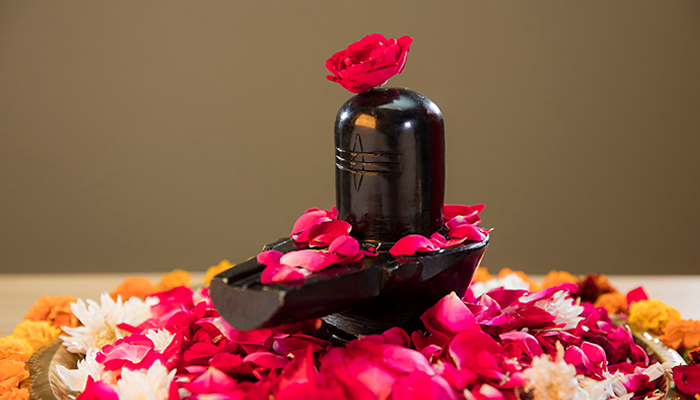Pandit for Rudrabhishek Puja: The Role of a Skilled Priest in the Sacred Ceremony

Rudrabhishek Puja is one of the most revered and auspicious Vedic rituals performed to invoke the blessings of Lord Shiva. The term "Rudrabhishek" combines two key elements: "Rudra," the name of Lord Shiva, and "Abhishek," which means anointing or bathing with holy substances. This sacred ceremony is believed to bring peace, prosperity, and spiritual growth to the devotees and is often performed during significant life events such as weddings, housewarmings, or during times of personal or family difficulties.
Central to the success of a Rudrabhishek Puja is the presence of a skilled and knowledgeable Pandit (priest). The role of the Pandit goes far beyond simply performing rituals; they serve as the guide who leads the devotees through the sacred rites, ensuring that the proper procedures are followed with devotion and precision. In this article, we explore the significance of having an experienced Pandit for Rudrabhishek Puja, the essential qualities to look for, and the impact of this divine ritual on the lives of the participants.
The Importance of Rudrabhishek Puja
Rudrabhishek Puja is a powerful Vedic ceremony that is meant to invoke Lord Shiva's blessings, appease him, and seek protection from all kinds of misfortunes. It is typically performed in temples or home shrines, and the procedure involves the offering of various sacred materials such as water, milk, honey, ghee, and other substances. Devotees chant mantras, particularly the Rudra Prashna and Maha Mrityunjaya Mantra, which are potent hymns dedicated to Lord Shiva.
When done correctly, Rudrabhishek Puja is said to cleanse the mind and soul of the devotee, promoting peace and spiritual growth. It can also act as a powerful remedy for doshas (flaws) in the horoscope and is known to have a positive influence on both health and wealth. Therefore, having a skilled Pandit perform the ceremony is essential to ensure that it is conducted in the proper manner, maintaining the sanctity of the process.
The Role of the Pandit in Rudrabhishek Puja
The Pandit is the cornerstone of Rudrabhishek Puja. A qualified and experienced Pandit brings spiritual knowledge, reverence, and ritual expertise to the ceremony, ensuring that all the necessary steps are carried out with precision. Here’s a closer look at the various responsibilities and roles of a Pandit during the Rudrabhishek Puja:
1. Preparation and Setup
Before the actual ceremony begins, the Pandit ensures that the area is purified and prepared. This includes setting up the altar, placing the idol or image of Lord Shiva, and organizing the offerings, which include items such as bilva leaves, incense, flowers, and the materials for the abhishek (such as milk, honey, water, and ghee). The Pandit may also perform a purification ritual, such as the Ganesh Puja, to remove any obstacles before the main ritual starts.
2. Chanting the Mantras
The Pandit is responsible for the recitation of sacred mantras throughout the puja. The most important of these are the Rudra Prashna and Maha Mrityunjaya Mantra, which invoke Lord Shiva's blessings for protection, healing, and prosperity. The Pandit chants these mantras with precision, as the correct pronunciation and rhythm are crucial to their efficacy. The devotees, under the guidance of the Pandit, may also repeat these mantras, creating a collective, spiritual energy that enhances the potency of the ritual.
3. Conducting the Abhishek
One of the most significant aspects of Rudrabhishek Puja is the abhishek, or anointing of the Shiva idol with holy substances. This is done in a specific sequence, and the Pandit’s role is to guide the process meticulously. The Pandit pours water, milk, honey, ghee, and other substances onto the idol while reciting the mantras, ensuring that each offering is made with devotion and respect. The Pandit's knowledge of the correct timings and procedures is vital to the success of the ritual.
4. Offering Prayers for the Devotees
The Pandit also offers specific prayers and wishes for the devotees, based on their individual needs or challenges. Whether the devotees are seeking health, wealth, or peace of mind, the Pandit will invoke the divine blessings of Lord Shiva to address their unique concerns. A personalized approach can make the ritual even more meaningful and powerful for those involved.
5. Providing Spiritual Guidance
Beyond the ritualistic duties, the Pandit acts as a spiritual guide for the devotees. After the puja, they often provide insights or advice based on the results of the ceremony. This may involve interpreting signs, offering mantras for ongoing practice, or recommending other spiritual practices for continued peace and well-being. The Pandit’s wisdom can help devotees deepen their understanding of the ritual and connect with the divine on a more profound level.
Qualities of an Ideal Pandit for Rudrabhishek Puja
Given the importance of the Rudrabhishek Puja, choosing the right Pandit is crucial. Here are some qualities to look for when selecting a Pandit for the ceremony:
1. Vast Knowledge of Vedic Scriptures
A knowledgeable Pandit should have a deep understanding of the Vedas, Upanishads, Puranas, and other sacred texts. They should be well-versed in the specific mantras and rituals associated with the Rudrabhishek Puja and should be able to perform the ceremony with accuracy and reverence.
2. Experience in Performing Puja
Experience matters significantly when it comes to conducting complex rituals like the Rudrabhishek. An experienced Pandit knows the importance of every gesture, chant, and offering, and can perform the ceremony seamlessly. They can also handle any unforeseen circumstances or challenges that might arise during the ritual.
3. Devotion and Spirituality
A true Pandit is not just a performer of rituals but a devotee of the divine themselves. Their spiritual integrity is reflected in the way they conduct the ceremony and in their ability to invoke divine energies. Devotion enhances the power of the ritual, and the Pandit’s sincerity will inspire the same reverence in the participants.
4. Ability to Personalize the Ritual
Every individual or family may have specific needs or desires when it comes to the Rudrabhishek Puja. A skilled Pandit will take the time to understand these and tailor the ceremony accordingly, whether it’s by offering prayers for health, prosperity, or family well-being.
5. Patience and Compassion
A good Pandit will also display patience and compassion toward the participants, answering their questions and helping them feel comfortable throughout the ceremony. This personal connection is vital to making the experience both sacred and meaningful.
Conclusion
Rudrabhishek Puja is a spiritually transformative ritual that invokes the blessings of Lord Shiva, and its success depends largely on the skill and dedication of the Pandit performing it. The Pandit’s role is central to ensuring that the ritual is conducted with the proper reverence, precision, and spiritual energy. By choosing a qualified and experienced Pandit, devotees can be assured that the ceremony will be conducted in the most auspicious manner, leading to blessings, peace, and prosperity for all participants.
Whether you are performing the Rudrabhishek Puja to seek divine blessings or to overcome personal difficulties, the presence of an experienced Pandit ensures that the puja will have its full spiritual impact. It is a reminder of the importance of devotion, discipline, and faith in connecting with the divine, bringing peace and harmony into your life.






